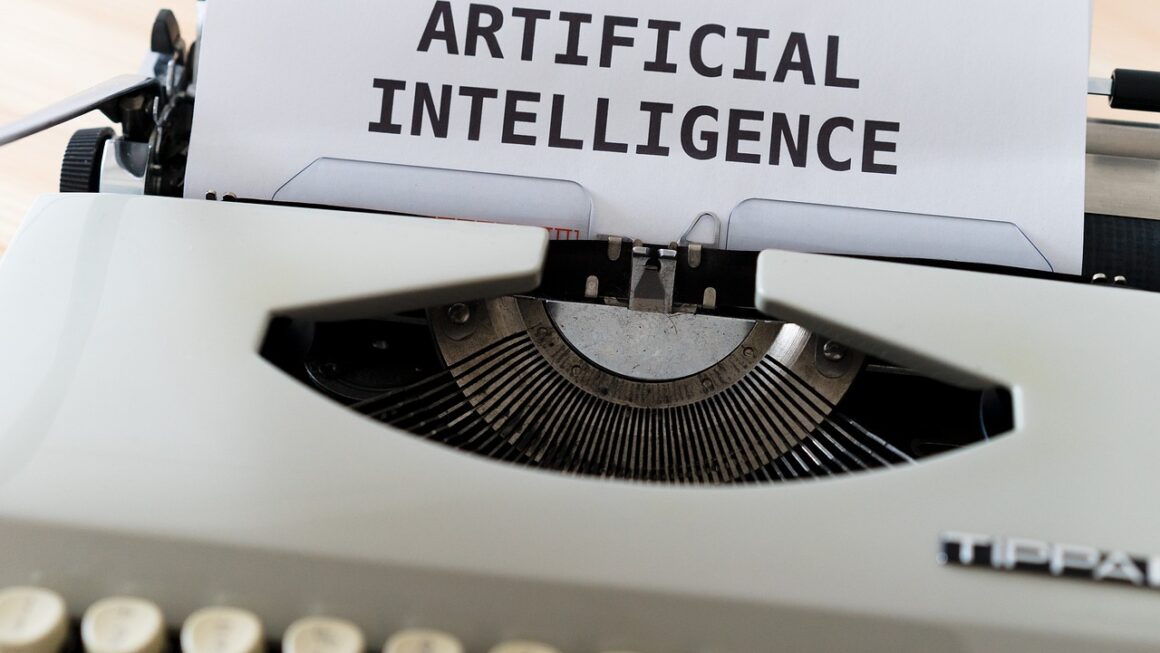AI is rapidly transforming industries across the globe, and the energy sector is no exception. From optimizing energy production and distribution to enhancing grid reliability and promoting sustainability, artificial intelligence is proving to be a game-changer. This article will explore the diverse applications of AI in energy, delving into specific examples and providing valuable insights into how this technology is shaping the future of energy.
Optimizing Energy Production
Predictive Maintenance in Power Plants
Predictive maintenance is revolutionizing how power plants operate. AI algorithms analyze data from sensors monitoring equipment performance (turbines, generators, pumps, etc.) to identify potential failures before they occur. This proactive approach significantly reduces downtime, lowers maintenance costs, and improves overall efficiency.
- Benefit: Minimizes unexpected outages and costly repairs.
- Example: GE’s Predix platform analyzes sensor data from gas turbines to predict maintenance needs. This allows for scheduled maintenance during periods of low demand, avoiding critical operational disruptions.
- Data Analysis: AI analyzes vibration, temperature, oil pressure, and other key metrics to detect anomalies and predict component lifespan.
Optimizing Renewable Energy Output
Renewable energy sources like solar and wind are inherently variable. AI helps to forecast energy generation and optimize operations based on weather patterns and other factors. More accurate predictions lead to better grid integration and reduce reliance on traditional energy sources.
- Benefit: Increases the efficiency and reliability of renewable energy sources.
- Example: Google uses AI to forecast wind power output 36 hours in advance, improving the dispatch of wind energy to the grid. They use weather data, historical power generation data, and machine learning algorithms to achieve high accuracy.
- Tip: Implementing sophisticated weather forecasting models and integrating them with AI-powered energy management systems can significantly improve renewable energy output.
Enhancing Energy Distribution and Grid Management
Smart Grids and AI-Powered Load Balancing
Smart grids use sensors, communication networks, and AI to manage electricity distribution more efficiently. AI algorithms can predict energy demand, optimize grid operations, and automatically respond to fluctuations in supply and demand, ensuring a stable and reliable energy supply.
- Benefit: Improves grid stability, reduces energy waste, and enhances resilience.
- Example: Using real-time data from smart meters and weather forecasts, AI can predict peak demand periods and proactively adjust energy flow to prevent overloads and blackouts.
- Actionable Takeaway: Invest in smart grid infrastructure and AI-powered energy management systems to enhance grid efficiency and reliability.
Detecting and Preventing Energy Theft
Energy theft is a significant problem for utilities, resulting in substantial financial losses. AI algorithms can analyze consumption patterns to identify anomalies that indicate energy theft. This allows utilities to take swift action and reduce losses.
- Benefit: Reduces financial losses due to energy theft and improves revenue collection.
- Example: AI can identify unusual patterns in energy consumption, such as sudden drops or spikes, which may indicate meter tampering or illegal connections.
- Data Point: According to estimates, energy theft costs utilities billions of dollars annually worldwide.
Promoting Energy Efficiency and Conservation
Smart Building Automation
AI plays a crucial role in optimizing energy consumption in buildings. Smart building automation systems use AI to control lighting, HVAC systems, and other energy-consuming devices based on occupancy patterns, weather conditions, and user preferences. This results in significant energy savings and reduced carbon footprint.
- Benefit: Reduces energy consumption and lowers operating costs in buildings.
- Example: Nest thermostats use AI to learn user preferences and automatically adjust temperature settings to optimize energy efficiency.
- Practical Tip: Integrate smart building automation systems with energy management platforms for comprehensive energy optimization.
Personalized Energy Management
AI-powered energy management systems provide personalized recommendations to consumers on how to reduce their energy consumption. These systems analyze energy usage data and provide insights and tips tailored to individual households. This empowers consumers to make informed decisions and conserve energy.
- Benefit: Empowers consumers to reduce their energy consumption and save money.
- Example: Opower uses AI to analyze energy usage data and provide personalized energy reports to consumers, highlighting areas where they can save energy and reduce their bills.
- Statistic: Studies show that personalized energy reports can lead to a reduction in energy consumption by up to 5%.
Advancing Energy Storage
Optimizing Battery Performance
Energy storage is crucial for integrating renewable energy sources and ensuring grid stability. AI can optimize the performance of battery storage systems by predicting energy demand, managing charging and discharging cycles, and extending battery lifespan. This enhances the efficiency and reliability of energy storage solutions.
- Benefit: Increases the efficiency and lifespan of battery storage systems.
- Example: Tesla uses AI to manage the charging and discharging of its Powerwall batteries, optimizing performance and extending battery lifespan.
- Key Feature: AI algorithms can predict energy demand and adjust charging cycles to maximize battery efficiency and minimize degradation.
Forecasting Battery Degradation
Understanding battery degradation is crucial for long-term energy storage management. AI can analyze battery performance data to predict when a battery will need replacement, allowing for proactive maintenance and cost savings.
- Benefit: Allows for proactive maintenance and reduces unexpected battery failures.
- Example: Using machine learning models, it’s possible to analyze voltage, current, and temperature data to estimate the remaining useful life of a battery.
- Value Proposition: Predictive analytics helps optimize battery replacement schedules and minimizes downtime for energy storage systems.
Conclusion
AI is revolutionizing the energy sector by optimizing production, enhancing grid management, promoting energy efficiency, and advancing energy storage. As AI technology continues to evolve, its applications in energy will only expand, driving innovation and creating a more sustainable and efficient energy future. By embracing AI, energy companies and consumers alike can unlock significant benefits, reduce costs, and contribute to a cleaner and more reliable energy landscape.




